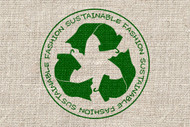The Importance of Sustainable Fashion
Posted by Gildan Brands on 2nd Mar 2023
Sustainable fashion is a term that is popularly thrown around, but what exactly does it mean?
Simply put, sustainable fashion is the practice of creating clothing and accessories in a way that is environmentally friendly, socially responsible, and economically viable. This means that the entire lifecycle of a garment, from the sourcing of raw materials to the disposal of the final product, must be considered and minimised to positively impact the environment and society.
In Australia, the fashion industry currently is a significant contributor to several environmental and social issues. According to the Australian Bureau of Statistics, the textile, clothing, and footwear (TCF) industry is the second-largest polluter in the country, responsible for 1.2% of all greenhouse gas emissions. Additionally, the TCF industry is known for its poor working conditions and exploitation of workers, particularly in developing countries where a majority of our fast fashion is manufactured.
With fast fashion not being viable for our carbon footprint and workers' treatment, we need to consider more sustainable solutions. Let’s explore the environmental and social impact of fast fashion and why sustainable fashion is the solution for the industry moving forward.
The Environmental Impact of Fast Fashion
One of the biggest issues with the traditional fashion industry is the concept of fast fashion. Fast fashion is the practice of producing large quantities of inexpensive clothing to keep up with the latest trends and styles. This approach results in garments that are often poorly made and not designed to last, leading to a higher rate of consumer turnover and a constant need for new items.
Therefore, the environmental impact of fast fashion is significant. The production of textiles and clothing requires large amounts of water, energy, and chemicals, and the disposal of garments contributes to pollution and waste. In Australia, it is estimated that 2,000 tonnes of textile waste is generated each year, and only 15% of this is recycled. This highlights the current detrimental effects fast fashion is having on Australia’s carbon footprint and the importance of Australia needing to transition to a more sustainable means of producing, consuming, and disposing of textiles and clothing.
Gildan understands the significance of addressing the environmental impact of fast fashion and we have successfully accomplished reducing our waste intensity by approximately 18% and our landfill waste by roughly 13% which is a significant achievement in the apparel industry.
The Social Impact of Fast Fashion
In addition to the environmental impact, fast fashion also has a significant social impact. The practice of outsourcing production to developing countries in order to cut costs has led to poor working conditions and the exploitation of workers. Many fast fashion companies have been criticised for not paying their workers a fair living wage, and for failing to provide a safe and healthy working environment.
In Australia, the TCF industry is known for its poor working conditions and exploitation of workers, particularly in developing countries where a majority of our clothing is manufactured. In fact, the Australian Council of Trade Unions (ACTU) estimates that 80% of workers in the TCF industry are paid less than the minimum wage. This shows us that sustainable fashion is important to improve working conditions and ethical practices to help improve the lives of workers and communities impacted by the fashion industry.
Gildan has successfully accomplished no social or economic fines or sanctions under the ILO 169 Convention on Indigenous and Tribal Peoples. This accomplishment coupled with their achievement of no incidents of child labour or young workers exposed to hazardous work is what makes Gildan one of the most sustainable apparel manufacturers.
By supporting sustainable fashion brands like Gildan Brands Australia, consumers can make a difference and help create a more just and equitable fashion industry.
The Solution: Sustainable Fashion
Sustainable fashion is clearly the solution to the environmental and social issues caused by fast fashion today. By considering the entire lifecycle of a garment, sustainable fashion aims to minimise the negative impacts on the environment and society. Gildan for example considers the entire lifecycle of their garments. From sourcing sustainably grown cotton to using low-carbon energy, we keep a keen eye on every part of the lifecycle of our sustainable garments.
Furthermore, sustainable fashion unlike fast fashion promotes the use of ethical and sustainable practices, such as recycling and upcycling old garments and fabrics. Sustainable fashion is a viable option for the fashion and textiles industry and can be achieved through a variety of practices such as using environmentally friendly materials, reducing water and energy usage, and ensuring fair working conditions for workers.
With the growing awareness of environmental and social issues, the need for sustainable fashion is becoming more important than ever. Consumers have the power to make a difference by choosing to support sustainable fashion brands for a sustainable future.
Contact Gildan for more information on their sustainable apparel.
